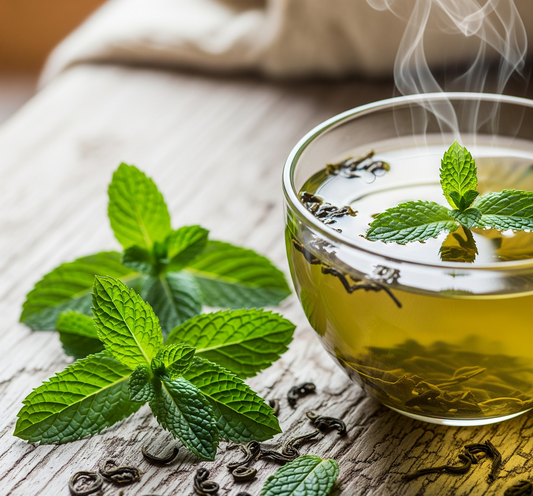Tea caffeine is considered to be better than coffee caffeine due to its milder and more sustainable effects on the body, as well as its potential health benefits, including improved focus, mood, and reduced risk of chronic diseases. The article also provides examples of high-caffeine teas and tips for optimizing the caffeine content of your tea.
Why Tea Caffeine is Better Than Coffee? Ever Wondered?
Caffeine is a natural stimulant that is found in many beverages, including tea and coffee. While both tea and coffee contain caffeine, there are some key differences in how the caffeine in tea and coffee affects the body. In this article, we will explore why caffeine in tea is often considered better than caffeine in coffee.
Make your move: Order now & make your move to the healthier lifestyle. (click here)

Effects of Caffeine in Tea vs Coffee:
One key difference between the caffeine in tea and coffee is how it affects the body. The caffeine in coffee tends to have a more immediate effect, causing a spike in energy levels and often leading to jitters or anxiety. In contrast, the caffeine in tea is released more slowly into the body, resulting in a milder and more sustained energy boost. This is due to the presence of L-theanine, an amino acid found in tea, which helps to balance out the effects of caffeine.
Benefits of Caffeine in Tea:
-
Improved Mental Alertness: The combination of caffeine and L-theanine in tea has been shown to improve mental alertness and focus [1].
-
Reduced Risk of Heart Disease: Studies have found that regular tea consumption is associated with a reduced risk of heart disease [2].
-
Increased Antioxidant Intake: Tea is rich in antioxidants, which can help to protect the body from damage caused by free radicals [3].
-
Reduced Risk of Diabetes: Some studies have suggested that regular tea consumption may be associated with a reduced risk of type 2 diabetes [4].
Effects of Caffeine in Coffee:
-
Improved Physical Performance: The caffeine in coffee has been shown to improve physical performance and endurance, making it a popular pre-workout drink [5].
-
Increased Metabolism: Caffeine has been shown to increase metabolism and help with weight loss, making it a popular ingredient in many weight loss supplements [6].
-
Improved Mood: The caffeine in coffee can have a positive effect on mood, with some studies suggesting that it may help to reduce symptoms of depression and anxiety [7].
Make your move: Order now & make your move to the healthier lifestyle. (click here)
Conclusion:
While both tea and coffee contain caffeine, the caffeine in tea is often considered to be better for the body due to its slower release and the presence of L-theanine, which helps to balance out the effects of caffeine.
Tea also has a number of health benefits, including improved mental alertness, reduced risk of heart disease, increased antioxidant intake, and reduced risk of diabetes.
However, the choice between tea and coffee comes down to personal preference and individual health needs.




